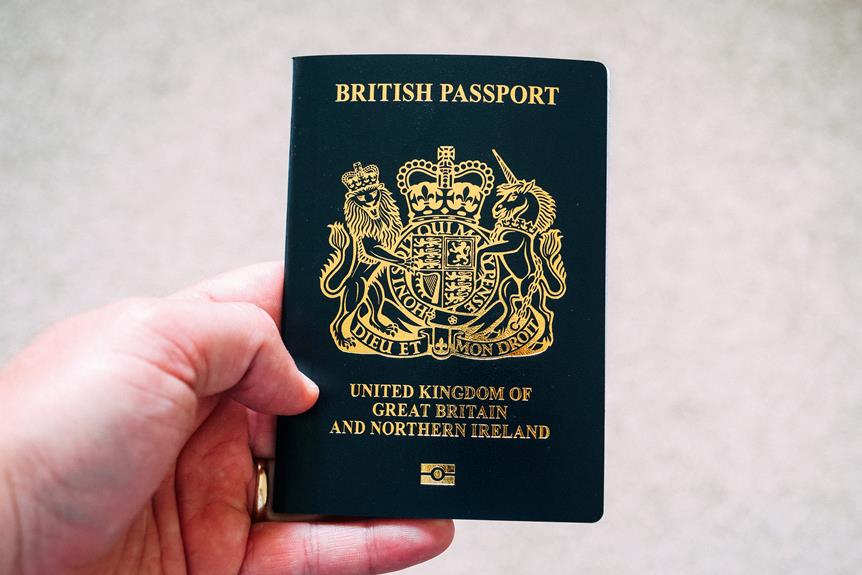
Do you ever feel like being a citizen of two countries is as elusive as finding a needle in a haystack? Well, fear not! In this article, we’ll explore a question – does Spain allow dual citizenship? So, if you’ve been wondering whether Spain allows individuals to hold citizenship in more than one country, you’re in the right place. Let’s dive in and uncover the legal framework, requirements, benefits, limitations, and the process of acquiring dual citizenship in Spain.
Key Takeaways
- Spain introduced a law in 2015 allowing dual citizenship under specific circumstances.
- Dual citizenship is available for those born in Spain, with a Spanish parent, or residing in Spain for a certain period.
- Not all countries allow dual citizenship, so individuals should verify their current country’s laws.
- The legal framework for dual citizenship can be complex and may vary depending on the situation.
Legal Framework for Dual Citizenship in Spain
We’re currently discussing the legal framework for dual citizenship in Spain. Dual citizenship refers to an individual holding citizenship in two different countries simultaneously. In Spain, the concept of dual citizenship has been a topic of debate for quite some time. The Spanish legal framework regarding dual citizenship has undergone several changes over the years.
Table of Contents
In 2015, Spain introduced a new law that allowed for dual citizenship under specific circumstances. This law grants Spanish citizenship to individuals who acquire another nationality without requiring them to renounce their Spanish citizenship. This means that people who are born in Spain, have a Spanish parent, or have resided in Spain for a certain period of time can hold dual citizenship.
It’s important to note that not all countries allow dual citizenship, so individuals considering acquiring Spanish citizenship should verify the laws of their current country of citizenship. Furthermore, the legal framework surrounding dual citizenship can be complex and may vary depending on the specific situation. Consulting with legal professionals or the Spanish authorities is recommended to ensure compliance with all legal requirements.
Requirements for Acquiring Dual Citizenship in Spain
To acquire dual citizenship in Spain, individuals must meet specific requirements and complete the necessary paperwork. The process for obtaining dual citizenship can be pretty complex, but it is certainly possible for those who fulfill the criteria. Firstly, one must have a valid reason for seeking dual citizenship, such as having Spanish ancestry or being married to a Spanish citizen. Additionally, applicants must demonstrate a basic understanding of the Spanish language and culture. This can be done by passing the DELE exam, which tests proficiency in Spanish, or by providing evidence of long-term residency in Spain. Furthermore, individuals must provide documentation proving their identity, such as a valid passport, birth certificate, or marriage certificate if applicable. Once all the necessary requirements are met, applicants must submit their paperwork to the relevant authorities and pay the associated fees. It is important to note that the process may vary depending on individual circumstances and the discretion of the Spanish government. Therefore, seeking professional advice and guidance is advisable to ensure a smooth and successful application process.
Benefits of Obtaining Dual Citizenship in Spain
There are numerous benefits to obtaining dual citizenship in Spain, such as increased travel opportunities and access to social services. Here are four reasons why dual citizenship in Spain is worth considering:
- Expanded Travel Opportunities: With dual citizenship, you can freely travel to Spain without worrying about visa restrictions or time limits. This allows you to explore the beautiful beaches of Costa del Sol, visit the iconic architecture of Barcelona, or indulge in the vibrant culture of Madrid whenever you please.
- Access to Social Services: Dual citizenship grants access to Spain’s extensive social services, including healthcare and education. You can benefit from their high-quality healthcare system and enroll your children in the country’s renowned public education system, ensuring a better quality of life for you and your family.
- Ease of Residency: Dual citizenship makes it easier to establish residency in Spain. You can enjoy the country’s pleasant climate, rich history, and vibrant lifestyle by living and working in Spain without any hassle or bureaucratic barriers.
- Business Opportunities: Having dual citizenship in Spain opens up business opportunities. You can invest in the country’s thriving real estate market, start your own business, or work for Spanish companies without legal limitations, giving you a competitive edge in the European market.
Limitations and Considerations of Dual Citizenship in Spain
When exploring dual citizenship in Spain, an important consideration is understanding the limitations and restrictions that may apply. While Spain does allow dual citizenship under certain circumstances, it is crucial to be aware of the potential constraints that might affect individuals seeking to obtain dual citizenship in this country.
Firstly, it is essential to note that Spain does not automatically grant dual citizenship to all applicants. To be eligible, individuals must meet specific criteria the Spanish government sets. This may include demonstrating a connection to Spain through ancestry, residency, or marriage to a Spanish citizen.
Additionally, Spain has restrictions on dual citizenship for citizens of countries that do not have a bilateral agreement with Spain. This means that individuals from nations without such deals may be required to renounce their original citizenship to become Spanish citizens.
Furthermore, it is essential to consider dual citizenship’s potential impact on one’s tax obligations. Spain operates on a worldwide income tax system, meaning individuals with dual citizenship may be subject to taxation on their global income.

Process of Applying for Dual Citizenship in Spain
We have researched and found that applying for dual citizenship in Spain can be complex and requires meeting specific eligibility criteria. However, with careful preparation and understanding of the requirements, it is possible to obtain dual citizenship in Spain successfully. Here are four crucial points to consider:
- Eligibility criteria: To be eligible for dual citizenship in Spain, you must have a direct connection to Spain through birth, ancestry, residency, or marriage. Each category has its specific requirements that must be met.
- Documentation: The application process requires various documents such as birth certificates, marriage certificates, and proof of residency. These documents must be translated into Spanish and legalized by the appropriate authorities.
- Language proficiency: One of the eligibility criteria for dual citizenship is demonstrating proficiency in the Spanish language. This can be done through language exams or by providing proof of education in Spanish.
- Patience and time: Obtaining dual citizenship in Spain can be lengthy. Being patient and prepared for potential delays and bureaucratic procedures is essential.
Frequently Asked Questions
Can a Person With Dual Citizenship in Spain Vote in Spanish Elections?
Yes, a person with dual citizenship in Spain can vote in Spanish elections.
How Long Does the Process of Acquiring Dual Citizenship in Spain Usually Take?
Acquiring dual citizenship in Spain usually takes around one to two years. The process involves submitting documents, attending interviews, and meeting specific criteria. For example, my friend recently obtained dual citizenship, which took them about 18 months.
Are There Any Restrictions for Dual Citizens Regarding Employment or Business Ownership in Spain?
Regarding employment or business ownership in Spain, dual citizens might have some restrictions. However, without the context of “Does Spain Allow Dual Citizenship,” it is difficult to provide a comprehensive answer.
Can Dual Citizens in Spain Pass on Their Citizenship to Their Children?
Yes, dual citizens in Spain can pass on their citizenship to their children.
Does Spain Recognize Dual Citizenship With All Countries, or Are There Any Specific Exceptions?
Yes, Spain recognizes dual citizenship with most countries. However, there may be specific exceptions where dual citizenship is not allowed. It is essential to check with the Spanish authorities for accurate and up-to-date information.




Leave a Reply
You must be logged in to post a comment.